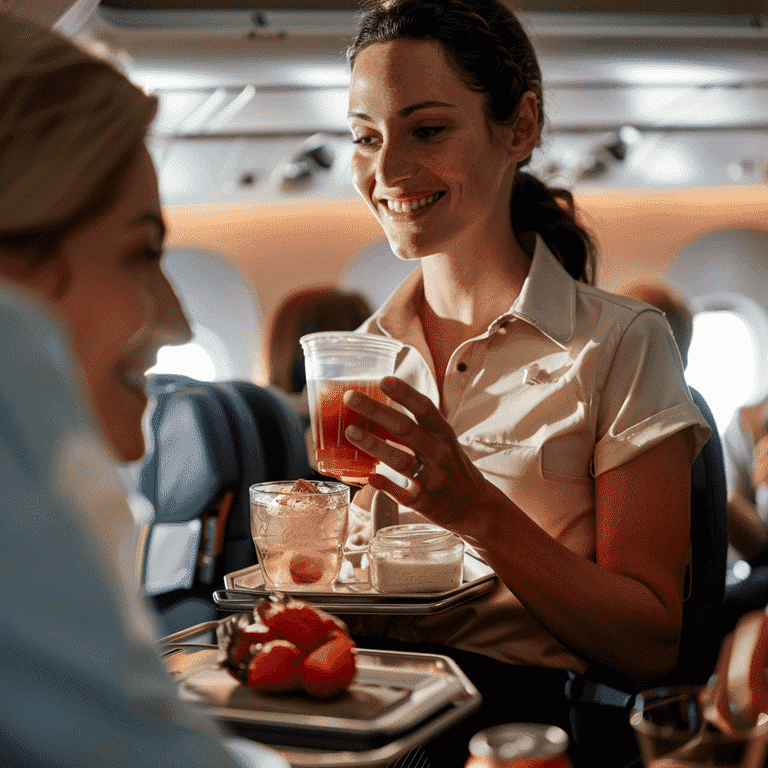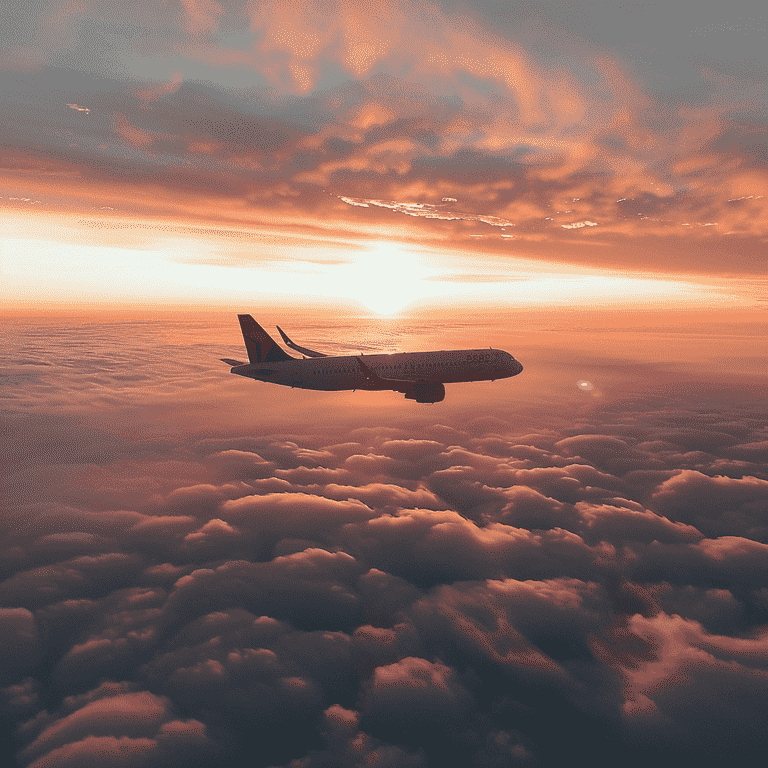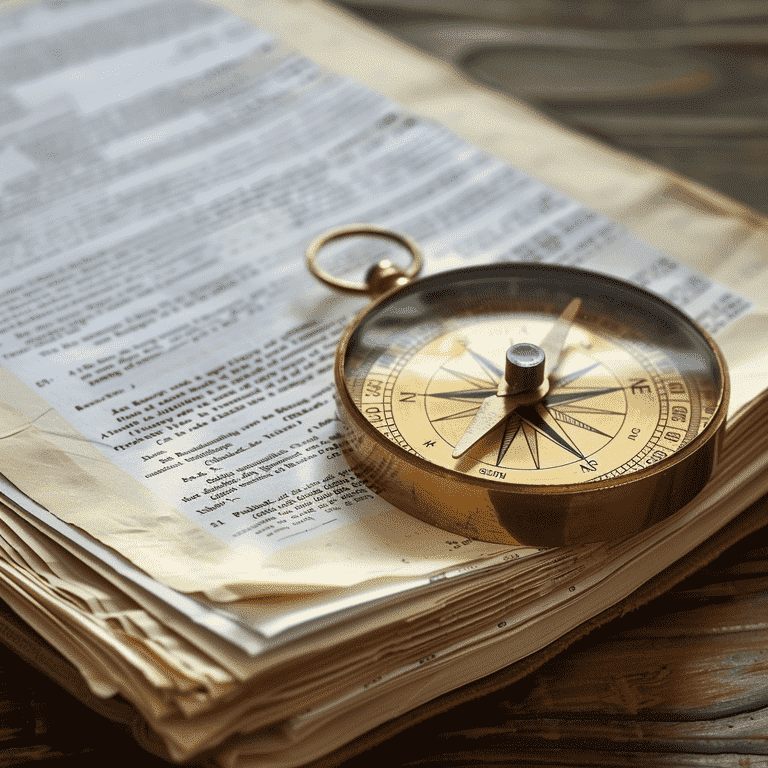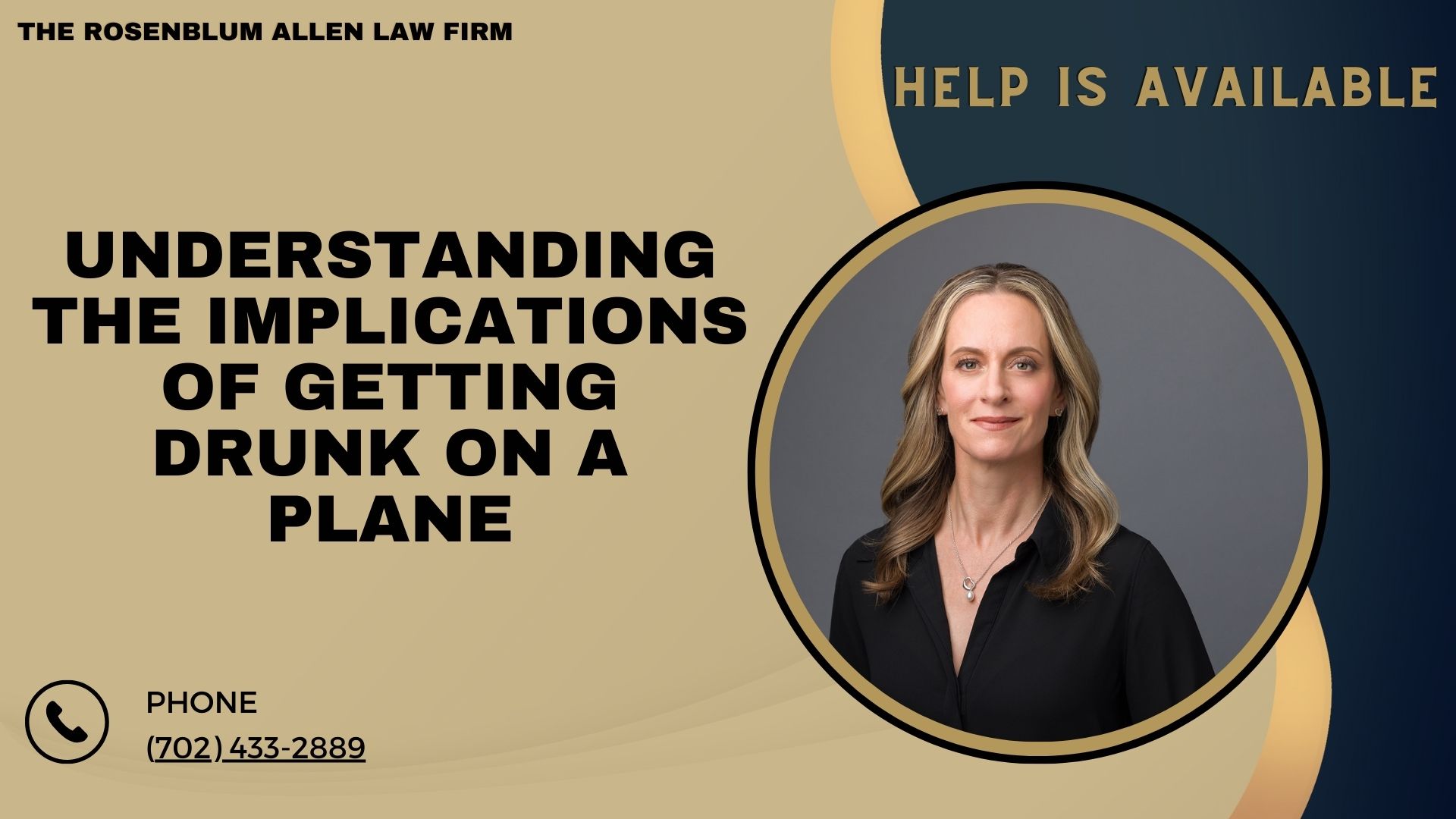Picture this: you’re thousands of feet in the air, the seatbelt sign is off, and the beverage cart is descending the aisle. Kicking back with a drink or two is tempting, especially when you’re off to a holiday or trying to calm those flying nerves. However, getting drunk on a plane differs from having a few at your local bar. The implications can be severe, affecting not just your health and safety but also posing legal risks. This article dives deep into what happens when the skies aren’t just friendly but tipsy.
 The Legal Implications of Getting Drunk on a Plane
The Legal Implications of Getting Drunk on a Plane
Flying above the clouds doesn’t mean you’re above the law. In fact, aviation laws are pretty stringent regarding alcohol consumption.
International Aviation Laws and Regulations
Different countries have different rules, but one thing is clear: disruptive behavior, especially when fueled by intoxication, is a big no-no.
- The Tokyo Convention: This international agreement gives the aircraft’s captain the right to take necessary measures should a passenger cause trouble or threaten the flight’s safety.
- Jurisdiction Over Airspace: Generally, the laws of the country where the aircraft is registered apply. However, in some cases, the country you’re flying over or into can assert jurisdiction, especially if you’ve been a not-so-model passenger.
Consequences of Disruptive Behavior Due to Intoxication
Getting rowdy or causing a scene can lead to more than just dirty looks from your fellow passengers.
- Fines and Legal Charges: Countries and airlines can impose hefty fines. In more severe cases, you might even face criminal charges.
- Banning from Airlines: Imagine being blocked by your favorite (or any) airline. It could be a better addition to your travel plans.
Health and Safety Concerns
Altitude does funny things to your body, and alcohol only amplifies that.
Effects of Alcohol at High Altitudes
Thanks to lower oxygen levels and cabin pressure, you might feel the effects of alcohol more quickly and strongly up in the air.
- Increased Intoxication Levels: Even if you’re a regular drinker, the alcohol might hit you harder than expected.
- Dehydration and Its Risks: Alcohol is dehydrating, and so is flying. Combine the two, and you’re at a higher risk of jet lag, headaches, and other health issues.
Safety Risks Posed by Intoxicated Passengers
It’s not just about you. Intoxicated passengers can pose a risk to everyone on board.
- Threats to Cabin Crew and Passengers: Aggressive behavior or even just clumsiness can result in injuries or disrupt the peace.
- Emergency Response Complications: In the unlikely event of an emergency, intoxicated could impair your ability to follow instructions and evacuate safely.
This section has only scratched the surface of what it means to get drunk on a plane. From legal ramifications to safety concerns, it’s clear that what might seem like a bit of fun can quickly become serious. Stay tuned as we dive deeper into airlines’ policies, personal responsibilities, and real-life incidents in the following sections.

Airlines’ Policies on Alcohol Consumption
When it comes to drinking mid-flight, not all airlines are created equal. However, they all have one thing in common: keeping the flight safe and comfortable for everyone.
Guidelines for Serving Alcohol on Flights
Airlines have specific rules about when and how much alcohol can be served. Here’s a general idea:
- Limitations and Restrictions: Many airlines limit the number of drinks per passenger or stop serving alcohol altogether on specific routes.
- Duty of Care by Airlines: Crew members are trained to recognize signs of excessive drinking and can refuse to serve more alcohol if they think they’ve had enough.
Procedures for Dealing with Intoxicated Passengers
No one wants it to come to this, but sometimes, action needs to be taken.
- Warning and Intervention Steps: It usually starts with a gentle warning. If things escalate, the crew might move you to another seat or involve security.
- Diversion of Flights in Severe Cases: Flights can be diverted to remove a disruptive passenger in extreme situations. Yes, it’s as severe (and expensive) as it sounds.
Personal and Social Responsibilities
Flying can be an exciting part of your journey, but it’s important to remember that you’re not the only one on the plane.
Ethical Considerations for Passengers
It’s all about respect and understanding.
- Respect for Fellow Passengers: Remember that everyone is confined to the same space. Your actions affect those around you.
- Avoiding Legal and Social Ramifications: Think before you drink. Avoid the embarrassment and potential legal trouble that can come from overindulgence.
Tips for Responsible Drinking
If you choose to drink, doing it responsibly is critical.
- Recognizing Personal Limits: Know how much you can handle, especially in the air where alcohol affects you more.
- Hydration and Pacing Strategies: Alternate between alcohol and water; don’t feel pressured to drink because it’s free.

Real-life Incidents and Consequences
Learning from others’ mistakes can be eye-opening. Here are a few incidents highlighting the seriousness of excessive flight drinking.
Notable Incidents Involving Intoxication on Flights
While specific stories are too numerous and varied to list, incidents typically involve:
- Legal Outcomes and Repercussions: Fines, bans, and even jail time.
- Impact on Airlines and Other Passengers: Delays, diversions, and discomfort.
Lessons Learned and Preventive Measures
Every incident is a learning opportunity, leading to:
- Education and Awareness Campaigns: Airlines and airports often run campaigns to promote responsible drinking.
- Role of Airport Bars and Lounges: Establishments on the ground are also starting to play their part by monitoring consumption and offering advice.
The journey through the skies is best taken with a clear head and a considerate heart. As we’ve seen through the policies, responsibilities, and incidents discussed, the implications of getting drunk on a plane extend far beyond a hangover. By choosing to drink responsibly, if at all, you ensure your safety and the well-being of your fellow travelers and the crew. So, the next time the drink cart rolls around, consider what’s at stake with each sip.

Navigating Legal Support and Advice
Finding yourself in hot water due to an incident on a plane can be daunting, but knowing when and how to seek legal assistance can make a big difference.
When to Seek Legal Assistance
Knowing when it’s time to call in the professionals is crucial.
- Facing Charges or Bans: Legal advice is essential if you’re facing criminal charges or have been banned by an airline.
- Understanding Your Rights: Knowing your rights can help you navigate the situation more effectively.
Resources for Legal Support
Help is at hand, but knowing where to look is the first step.
- Aviation Law Specialists: Lawyers who specialize in aviation law understand the complexities of the field.
- Passenger Rights Organizations: These organizations can guide and support passengers facing legal issues.

Breaking It All Down
The Chewbacca Defense is a term from a comedic parody. It highlights serious issues in law, media, and education. It vividly reminds of the power of persuasion. It shows the importance of critical thinking and the ethical limits of argumentation. It may provide a chuckle or two. But, the talks it starts are crucial. They help us understand how we persuade, and decide what is fair in our society. We live in a complex world. The Chewbacca Defense legacy challenges us to look beyond the surface. We must question what we hear and strive for clear thoughts and arguments.

Frequently Asked Questions
Can I bring my alcohol onto a plane?
Policies vary by airline. But, they generally allow passengers to bring alcohol onboard in their carry-on luggage. It just has to meet airport security rules for liquids. However, the airline may not permit consuming alcohol during the flight.
How do cabin crews handle passengers who refuse to stop drinking?
Cabin crews are trained to deal with such situations diplomatically but firmly. They may stop serving alcohol to the passenger. If it continues, they will involve the onboard security team or the police when they land.
What should I do if I'm seated next to someone who is becoming increasingly intoxicated?
Politely ask the person to stop drinking or behave if you feel comfortable doing so. Otherwise, alert a flight attendant who can address the situation professionally.
Are there any tips for avoiding overconsumption of alcohol on a plane?
Yes, eating a big meal before drinking helps. So does pacing yourself, picking lighter drinks, and setting a personal limit. These steps can prevent overdrinking.
What happens if a flight is diverted because of an intoxicated passenger?
If a flight is diverted because of a drunk passenger’s disruptive behavior, the passenger may have to pay for the costs of the diversion. They may also face legal consequences.
Can altitude affect how alcohol impacts me?
Yes, less oxygen at cruising altitude can boost alcohol’s effects. It leads to quicker intoxication and worse impairment than drinking at ground level.
What are some alternatives to drinking alcohol on a plane?
Many airlines offer a range of non-alcoholic drinks. These include soft drinks, juices, and water. Reading, watching movies, or listening to music can also be good alternatives.
What should I do if I've had too much to drink on a plane?
If you realize you’ve drunk too much, stop at once. Drink plenty of water, try to eat, and tell a flight attendant if you feel sick.
Is it true that the consequences of being drunk on a plane can extend beyond the flight itself?
Yes, you may face fines or detention for being disruptive on a plane. The airline may also ban you, and you could face legal charges. It might also affect your future travel.
How can I learn more about an airline's alcohol policy before my flight?
Most airlines publish their policies about in-flight alcohol consumption on their websites. You can also contact the airline directly for more information.

Additional Resources for You
As you navigate through the complexities of legal issues, it’s important to have access to reliable and effective resources. Our lead attorney, Molly Rosenblum Allen, Esq., has not only provided insightful guidance on the topic of this article but has also created a suite of resources to assist you in your time of need. Whether you’re facing criminal charges, DUI allegations, or other legal challenges, the Rosenblum Allen Law Firm is here to help. Below is a list of specialized legal services and resources available to you:
Criminal Defense Attorneys: Effective legal defense for a wide range of criminal charges. Learn more.
Las Vegas DUI Lawyer: Dedicated support and defense strategies for DUI cases. Explore your options.
Domestic Violence Lawyer Las Vegas: Compassionate and strong representation for domestic violence cases. Find support.
Drug Possession Lawyer: Experienced defense for drug possession charges. Get help.
Sex Crimes Attorney: Specialist legal defense for sex crime accusations. Protect your rights.
CPS Defense Attorney: Representation for child abuse and neglect cases. Defend your family.
Misdemeanor Lawyer: Legal advice and defense for misdemeanor charges. Learn more.
Las Vegas Warrant Defense Attorney: Assistance with resolving outstanding warrants. Clear your name.
Las Vegas Probation Violation Attorney: Representation for probation violation issues. Get representation.
Theft Crime Defense Lawyer: Defense services for theft and property crime cases. Protect your future.
Kidnapping Lawyers: Expertise in handling serious charges like kidnapping. Seek effective help.
Juvenile Defense Lawyers: Specialized defense for minors facing legal challenges. Support for your child.
Firearms Lawyer Las Vegas: Legal guidance and defense for firearms-related charges. Understand your rights.
Molly Rosenblum Allen, Esq., and the Rosenblum Allen Law Firm are committed to providing you with the support and legal expertise you need to navigate through challenging times. For more information or to schedule a consultation, please visit the links provided.

Outside Resources for You
American Bar Association (ABA) – A premier resource for legal professionals and the public, offering a wealth of information on various legal topics. Visit ABA
National Association of Criminal Defense Lawyers (NACDL) – Provides resources and advocacy for criminal defense lawyers and individuals facing criminal charges. Visit NACDL
Substance Abuse and Mental Health Services Administration (SAMHSA) – Offers support and resources for individuals dealing with substance abuse issues, which can be relevant in cases involving DUI or drug possession. Visit SAMHSA
National Domestic Violence Hotline – A crucial resource for individuals facing domestic violence, offering support, information, and advocacy. Visit the National Domestic Violence Hotline
National Council of Juvenile and Family Court Judges (NCJFCJ) – Provides research, training, and resources to improve the justice system for families and children, including those involved in juvenile defense cases. Visit NCJFCJ
Families Against Mandatory Minimums (FAMM) – Advocates for fair and proportionate sentencing laws, offering resources for those impacted by the criminal justice system. Visit FAMM
Child Welfare Information Gateway – Offers resources and information on child welfare, including child abuse and neglect, which could be beneficial for those seeking CPS defense. Visit Child Welfare Information Gateway

A Special Message from Our Lead Attorney, Molly Rosenblum Allen, Esq

Dear Reader,
Thank you sincerely for taking the time to explore the resources we’ve shared. We know that legal matters can be scary. Our goal is to give you the support and info you need. It will help you make informed choices about your situation.
Each journey through the legal system is unique. While these resources are a good start, nothing replaces personalized advice. We specialize in many legal issues. They include challenging divorce and criminal charges. Know that my team and I are here to assist with them.
Please reach out to us at (702) 433-2889. We can discuss your situation. We can talk about how we might help move it forward in a positive way.
Looking forward to the opportunity to support you,
Molly Rosenblum Allen, Esq.




